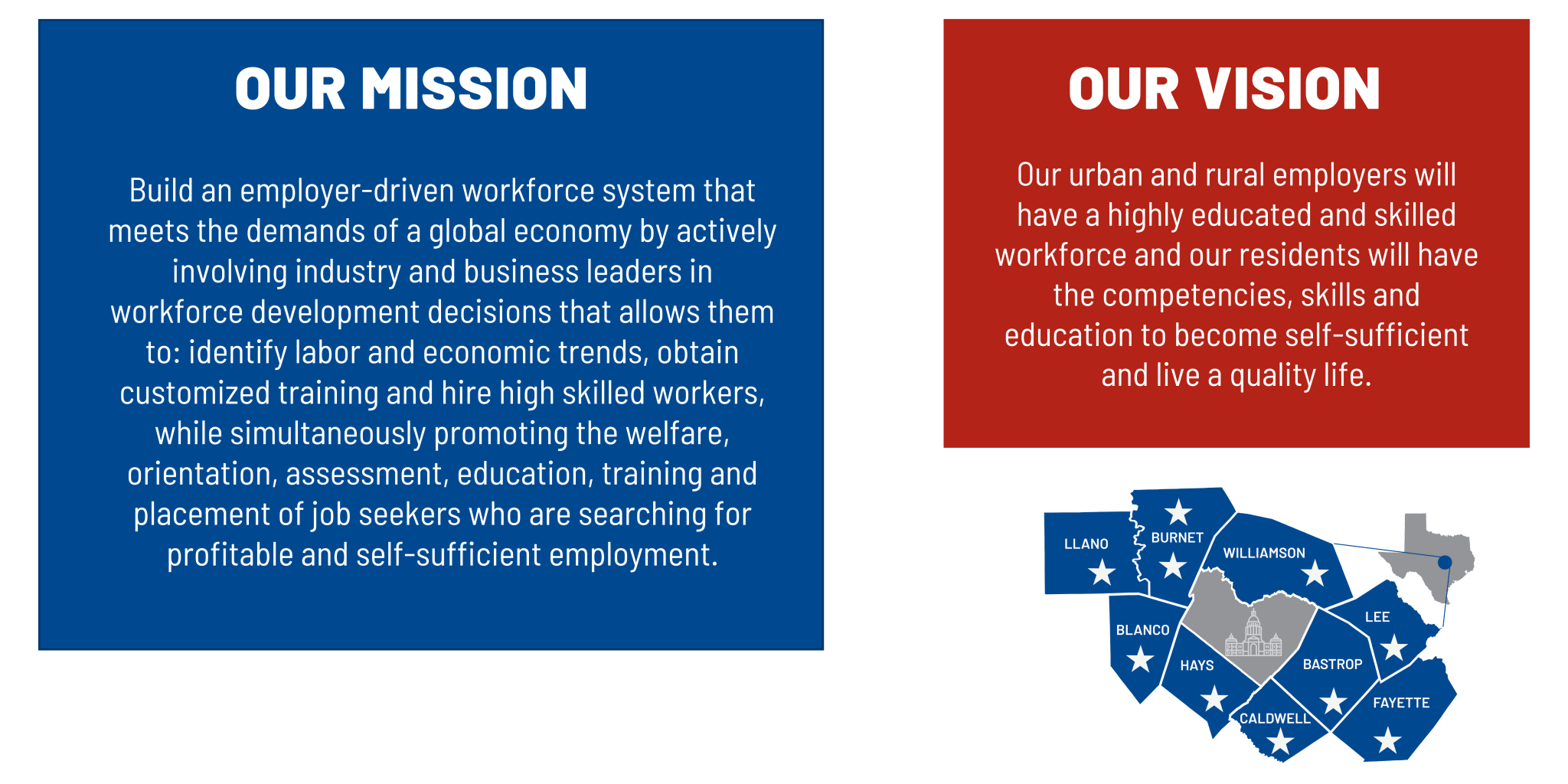Workforce Solutions Rural Capital Area is a community partnership providing no-cost recruitment and employment services to businesses and job seekers in the Rural Capital Area of Texas. This nine-county region includes Bastrop, Blanco, Burnet, Caldwell, Fayette, Hays, Lee, Llano, and Williamson counties.
About Us

Who We Serve
Helping Local Businesses Thrive
At WSRCA, we work hand-in-hand with local employers, educators, and community partners to meet the region’s workforce needs. Our Business Services team supports companies through every phase of the hiring process—from recruiting and interviewing to job postings and customized training. We also offer access to valuable programs like Skills for Small Business and the Skills Development Fund to help train and upskill employees, keeping businesses strong and competitive.
Empowering Job Seekers at Every Stage
Looking for a job or a new career path? WSRCA is here to help—at no cost to you. Our career centers provide free access to computers, internet, job search tools, and expert staff who can guide you through resume writing, interview prep, training options, hiring fairs, and more. Whether you're a veteran, a young adult, or someone exploring new opportunities, our Talent Development Team is ready to support your journey.
Affordable Child Care That Supports Your Goals
We know that reliable child care is essential for working families. That’s why our Child Care Services (CCS) program helps eligible parents cover the cost of care for children 12 and under—or up to age 18 for children with disabilities. Our team also partners with local providers to ensure safe, high-quality care. With CCS, families can focus on reaching their career and education goals, knowing their children are in good hands.
